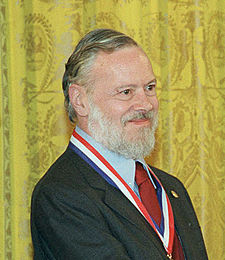Here is an inspirational Google+ post from the Google employee Jean-Baptiste Queru, on the subject of technological complexity. It goes all the way from “What happens when you go to www.google.com?“, through the layers, through communication gap between technical and non-technical people, to the point of why people talked more about Steve Job’s death rather than Dennis Ritchie’s passing, even though the impact of the last one on the technology in general is much bigger. He even touches on the problem with the patent system a bit.
Today’s computers are so complex that they can only be designed and manufactured with slightly less complex computers. In turn the computers used for the design and manufacture are so complex that they themselves can only be designed and manufactured with slightly less complex computers. You’d have to go through many such loops to get back to a level that could possibly be re-built from scratch.
Once you start to understand how our modern devices work and how they’re created, it’s impossible to not be dizzy about the depth of everything that’s involved, and to not be in awe about the fact that they work at all, when Murphy’s law says that they simply shouldn’t possibly work.
For non-technologists, this is all a black box. That is a great success of technology: all those layers of complexity are entirely hidden and people can use them without even knowing that they exist at all. That is the reason why many people can find computers so frustrating to use: there are so many things that can possibly go wrong that some of them inevitably will, but the complexity goes so deep that it’s impossible for most users to be able to do anything about any error.
That is also why it’s so hard for technologists and non-technologists to communicate together: technologists know too much about too many layers and non-technologists know too little about too few layers to be able to establish effective direct communication. The gap is so large that it’s not even possible any more to have a single person be an intermediate between those two groups
A must read.
